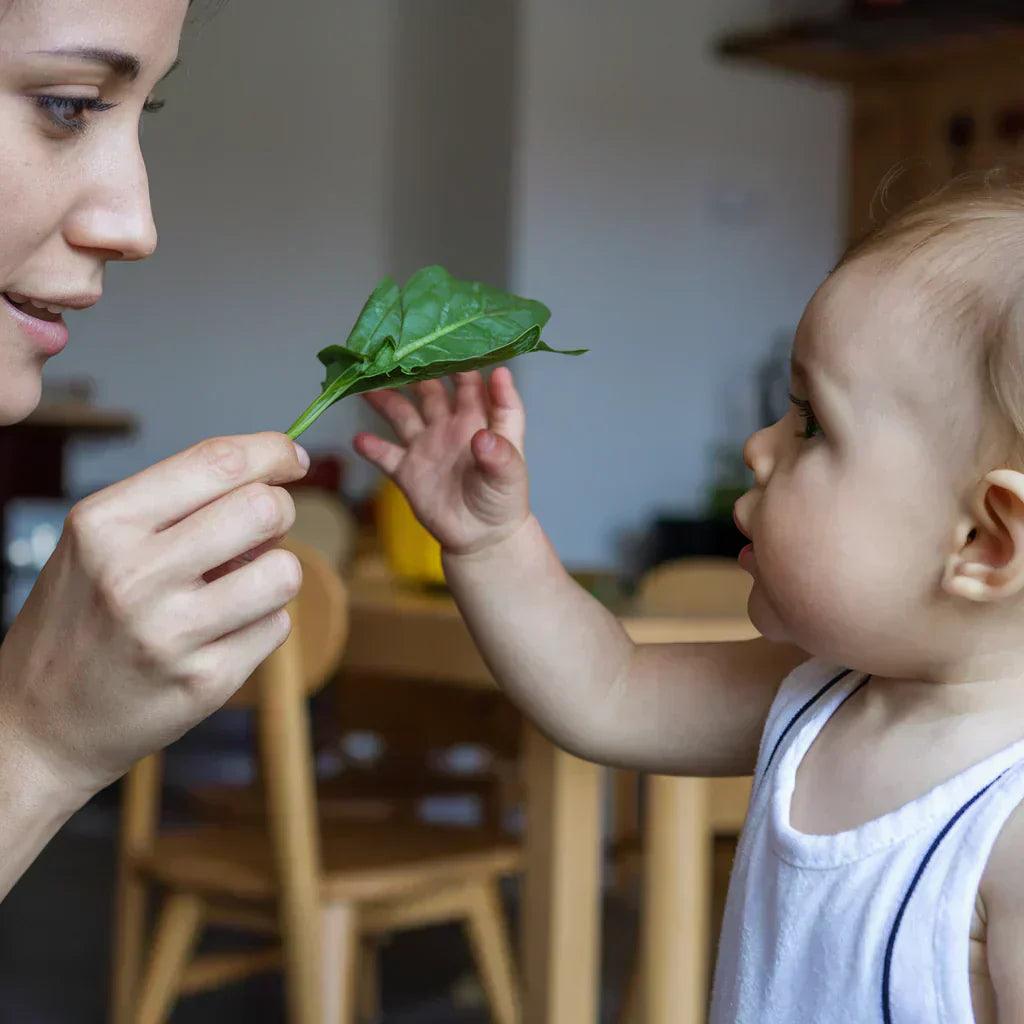Introduction
The Australian Guide to Healthy Eating promotes eating a wide variety of foods high in nutrition from each of the five food groups every day.
A toddler needs a highly nutritious diet to optimize their growth and development. There is very little room for ‘extras’ or ‘sometimes’ foods if they are to meet these nutritional requirements and not exceed their energy intake.
A child aged from 12 to 36 months should be eating a varied diet both within each day and from one day to the next. However, as many of us know, this is not necessarily achievable as our toddlers often become quite fussy and also develop some independence in their personal choices.

Reference: www.eatforhealth.gov.au
Understanding Nutritional Needs for Toddlers (1-3 Years)
Nutritional needs for toddlers aged 1-3 years are specific and crucial for their development. At this stage, toddlers require a diet rich in essential nutrients like vitamins, minerals, proteins, and healthy fats. These nutrients support their rapid growth, brain development, and overall health.
Ensuring that your toddler receives a balanced diet daily helps build strong bones, improve immunity, and establish healthy eating habits that can last a lifetime.
The recommended daily requirements of a toddler of 12 to 36 months of average height and activity level are:
|
VEGETABLES & LEGUMES |
2-3 serves |
|
FRUIT |
1/2 to 1 serve |
|
GRAIN FOODS (mostly whole grain options) |
4 serves |
|
MEAT, POULTRY, FISH, EGGS, LEGUMES, SEEDS & NUT PRODUCTS (Do NOT give nuts to children under 6 due to choking risk) |
1 serve (this may be given as 2 x 1/2 serves or 3 x 1/3 serves) |
|
DAIRY - MILK, YOGHURT, CHEESE or suitable alternatives |
1 to 1 and a 1/2 serves |
If your child is taller or more active they may likely require additional serves to meet their needs.
What Is a Serve? Understanding Portion Sizes for Toddlers
Understanding what constitutes a "serve" is essential for ensuring your toddler meets their daily nutritional needs
|
Vegetables |
1/2 cups cooked green, yellow or orange vegetables |
|
1 serve is approx. 75g |
1/2 cups cooked peas, lentils, or beans |
|
1 cup green leafy or raw salad vegetables |
|
|
1/2 medium potato/sweet potato or other starchy vegetables |
|
Fruit |
1 medium apple, banana, orange, or pear |
|
1 serve is approx. 100-150g |
2 small apricots, kiwi fruit, or plums |
|
1 cup diced fruit |
|
Grains |
1 slice bread or 1/2 medium bread roll |
|
1 serve |
1/2 cups (75-120g) cooked rice, pasta, noodles |
|
1/2 cups cooked porridge |
|
|
2/3 cups commercial cereals (avoid any with added sugar) |
|
|
1/4 cup muesli |
|
|
3 crispbreads or 2 thin rice cakes |
|
Meat & alternatives |
65g cooked meat (approx. 100g raw) |
|
1 serve |
80g poultry |
|
100g fish |
|
|
2 large eggs (120g) |
|
|
1 cup (150g) cooked or canned legumes |
|
|
30g nut pastes, seeds |
|
Dairy |
1 cup (250mL) milk or suitable alternative |
|
1 serve |
2 slices (40g) hard cheese |
|
1/2 cup ricotta |
|
|
3/4 cup (200g) yoghurt |
Addressing Toddler Nutritional Deficiencies
Despite your best efforts, there may be times when your toddler isn’t meeting their nutritional needs. This could be due to fussy eating, food intolerances, or other factors. Signs of nutritional deficiencies may include fatigue, poor growth, or frequent illnesses.
Toddler Vitamins
In such cases, toddler vitamins may help fill the nutritional gaps. These vitamins are designed to complement your child’s diet, ensuring they receive adequate levels of essential nutrients like Vitamin D, Iron, and Calcium, which are critical for growth and development.When to Consider a Toddler Nutrition Drink?
If you suspect your toddler is not meeting their nutritional requirements, consider introducing a toddler nutrition drink like Optivance Toddler Smoothie. These drinks are formulated to provide a balanced intake of essential nutrients that may be lacking in your child's diet, supporting their overall health and development.
Tips to Encourage Healthy Eating Habits
Here are some practical tips to encourage your toddler to eat a balanced diet:
- Offer Variety: Regularly introduce new foods and flavours to your toddler's diet to prevent monotony.
- Be Patient: It may take several attempts before your toddler accepts a new food.
- Lead by Example: Show your toddler that you enjoy eating a variety of healthy foods.
Ensuring Your Toddler is on the Right Track
Ensuring your toddler meets their nutritional needs is vital for their growth and development. Regularly assess their diet and make adjustments as needed. If you’re concerned about any deficiencies, products like Optivance Toddler Smoothie can help fill the gaps and support your child’s health.
Check out some of our delicious smoothie recipes, designed to incorporate all the necessary nutrients and vitamins you need in your motherhood journey:
About the Author
Kristy Petersen is a passionate nutritionist specialising in gut health and children’s nutrition. With years of experience, she is dedicated to helping families achieve optimal health through balanced dietary practices.
Learn more about Kristy here





